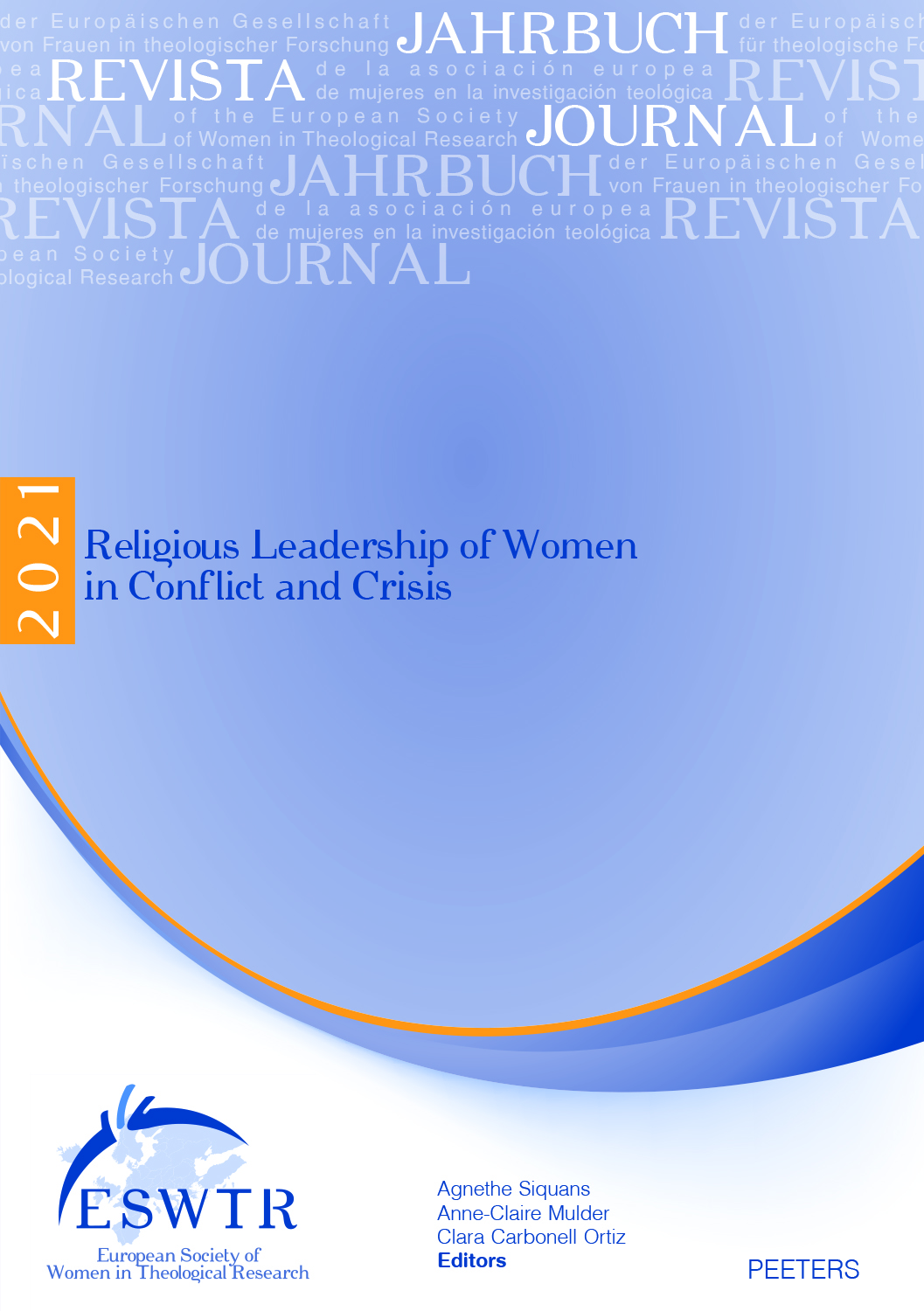 previous article in this issue previous article in this issue | next article in this issue  |

Preview first page |
Document Details : Title: Finnish Orthodox Women and the Virgin Mary Author(s): VUOLA, Elina Journal: Journal of the European Society of Women in Theological Research Volume: 24 Date: 2016 Pages: 63-80 DOI: 10.2143/ESWTR.24.0.3170026 Abstract : The first part of this paper analyses some methodological issues concerning the use of ethnographic methods in theology. It is important to pay attention to how ethnographic and textual methods may enrich each other in theology, religious studies, and anthropology of religion. Feminist theologians have not widely used ethnographic methods or included the insights of anthropologists of religion in the development of such a feminist theology, that is also attentive to women’s lived religious practices and ways of understanding their religious identity. In the course of research, over 60 Finnish Orthodox women had been interviewed in 2013-14 regarding their perceived relationship with the Virgin Mary. Preliminary results show, that in the lived experience of Orthodox women, Mary gives worth to women in the church in spite of exclusive male leadership and priesthood. However, this does not exclude a critique of male dominance in the Church, even though this is not necessarily or only related to all-male priesthood. Finnish Orthodox women negotiate with the gendered teachings and practices of their church in multiple ways. Many of the informants expressed critical views which could be seen as feminist, on the basis of their lived experience as women. Their critique was aimed at the Church as an institution which holds and exercises all kinds of power – not just within itself but in the society and culture at large. En la primera parte del presente artículo, son analizadas algunas cuestiones metodológicas sobre la utilización de métodos etnográficos en teología. Es importante tener en atención que, en áreas como la teología, estudios sobre la religion o antropología, los métodos etnográficos y textuales se podrían enriquecer mutuamente. Las teólogas feministas no han recurrido mucho al uso de métodos etnográficos, ni han incluído las ideas de los antropólogos de religion para el desarrollo de una teología feminista centradas en las prácticas religiosas vividas por las mujeres y sus formas de entender su identidad religiosa. Durante los anõs 2013 y 2014, entrevisté más de 60 mujeres ortodoxas finlandesas sobre su relación con la Virgen María. Algunos resultados preliminares de este estudio muestran que, para estas mujeres ortodoxas, la Virgen María valoriza a las mujeres, a pesar de que el liderazgo en la Iglesia y sacerdocio sea ejercido exclusivamente por hombres. Sin embargo, esto no excluye críticas a la dominación masculina en la Iglesia, aunque este aspecto no está ni necesariamente ni únicamente relacionado con el sacerdocio exclusivamente masculino. Las mujeres ortodoxas finlandesas negocian con aquellas enseñanzas y prácticas que se relacionan con cuestiones de género diferentemente. Muchas de las mujeres entrevistadas espresaron ciertas críticas, que pueden ser interpretadas como feministas, a partir de su experiencia vivida como mujeres. Las críticas fueron dirigidas hacia la iglesia como institución, que mantiene y ejerce varias formas de poder – no únicamente dentro de la iglesia sino también, de una forma más amplia, en la sociedad y cultura. |
 |


